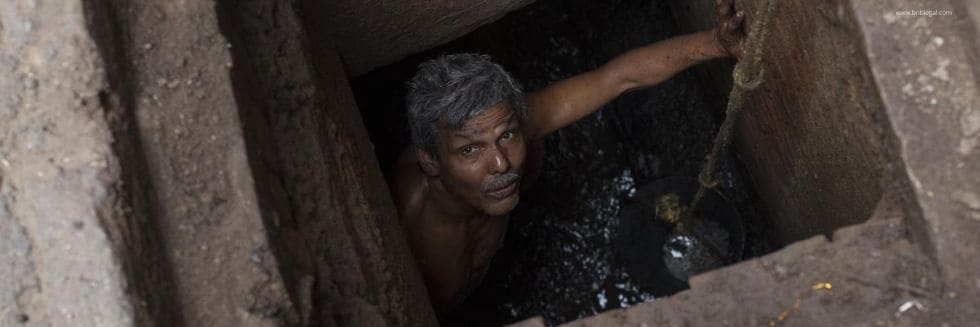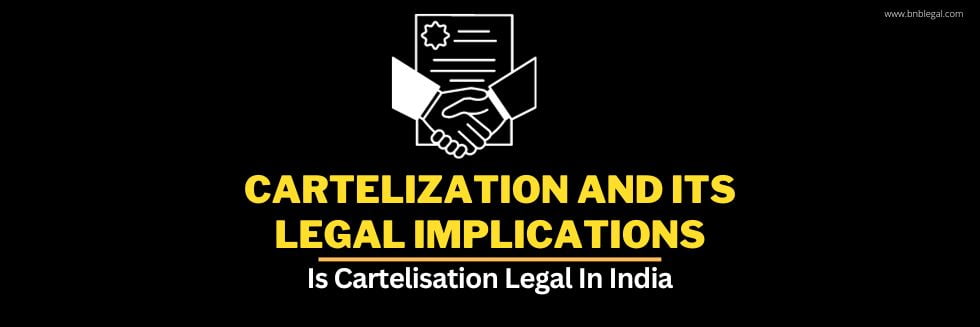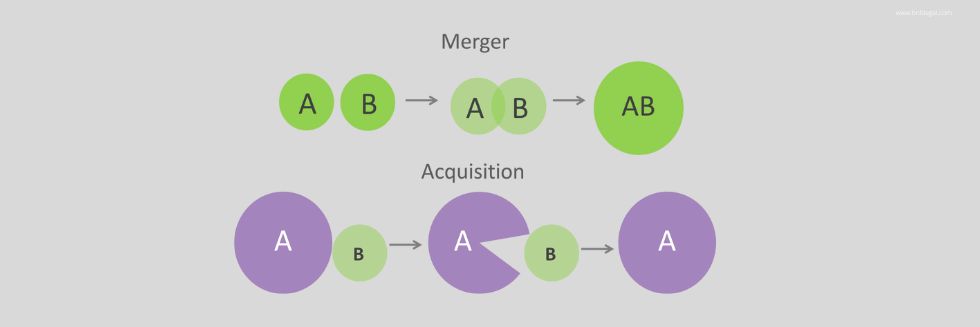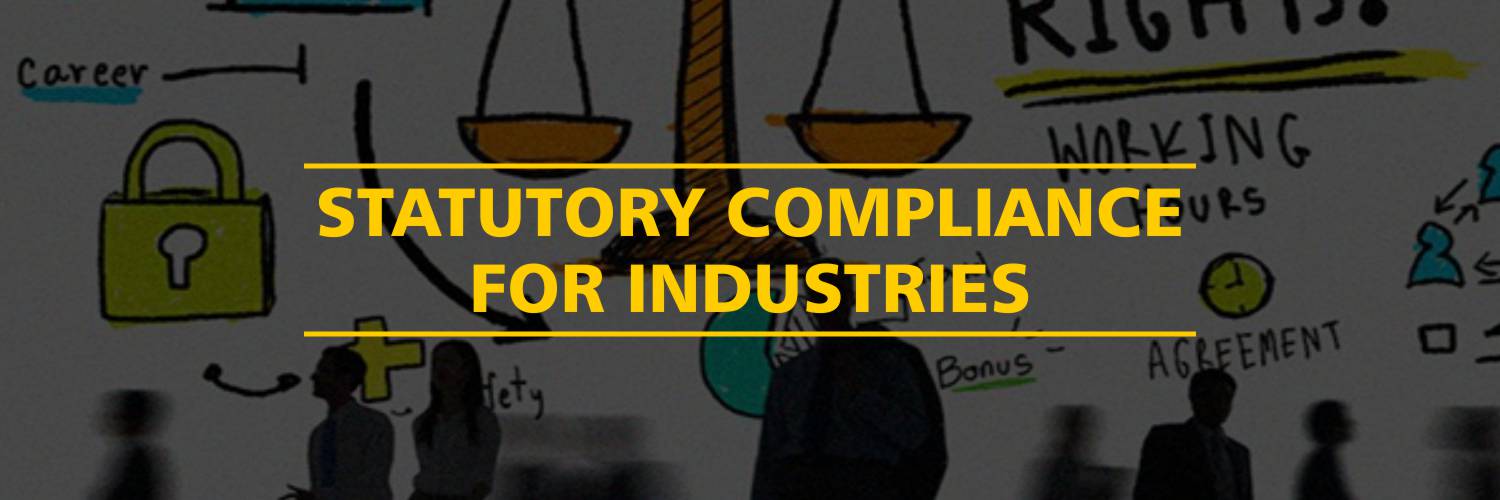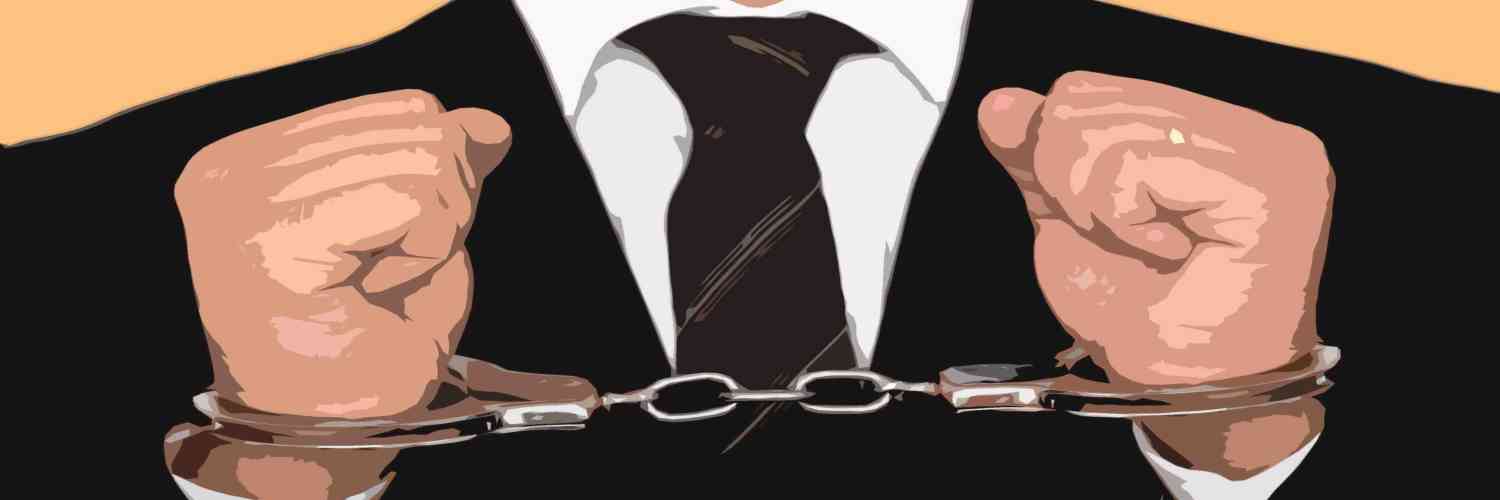Introduction
Manual scavenging refers to a dehumanizing practice that has existed in India for centuries since ancient times. The process points towards manual cleaning of human excreta from dry latrines, open drains and sewers. Manual Scavengers are more often than not from downtrodden communities and have been living under abject poverty. These individuals while performing manual scavenging are exposed to grave health risks, namely being exposure to toxic gases and infectious diseases, which substantially shortens their lifespan. This includes contact with gases like hydrogen disulfide, methane and ammonia which in turn cause vision issues, give rise to respiratory ailments, can cause seizures and there is also a lurking danger of a bacterial infection like leptospirosis.
Despite being officially banned in India as early as 1993, manual scavenging continues to be practised in many parts of the country. According to the Socio-Economic and Caste Census 2011, there were about 1.8 lakh Indian households who relied on manual scavenging for their survival.
The major step came in the form of legislation that was enacted to combat the menace of manual scavenging, i.e., The Prohibition of Employment as Manual Scavengers and their Rehabilitation Act, 2013, said act prohibits the construction of new dry latrines and also forbids employing manual scavengers, provisions of the act also cast a duty upon the government to provide alternative employment to person engaged in manual scavenging and to provide for their and their family’s rehabilitation.
In the Supreme Court’s decision in the case of Safai Karamchari Andolan and Others v. Union of India and Others, the court directed the government to lay more emphasis on the effective implementation of the PEMSR Act, the court highlighted the active role which needs to be played by the stakeholders to end the involvement of future generations in manual scavenging and to facilitate the rehabilitation of manual scavengers. This rehabilitation encompassed financial support, self-employment training, and educational opportunities. The court also provided that compensation of ₹ 1 lakh be given to family members of those individuals who lost their lives in sewage-related works post the year 1993.
The Present Scenario
The Supreme Court in a very recent judgment in the case of Dr. Balram Singh v. Union of India,[2] issued a list of directions addressed towards the central government and the state governments to ensure the uprooting of the menace of manual scavenging, the bench expressed grave concern at the persistence of this abhorrent practice in India, the Supreme Court directed that the compensation in cases of sewer deaths must be upscaled to Rs.30 lakhs. In cases of permanent disablement arising from sewer operations, the directed compensation is to be Rupees 20 lakhs and for other forms of disablement, the compensation must be not less than Rs 10 lakhs.
The court in its judgment referred to a famous statement given by Dr. B.R. Ambedkar:
“Ours is a battle not for wealth of power. It is a battle for freedom. It is a battle for the reclamation of human personality“.
The court also observed:
“If you have to be truly equal in all respects, the commitment that Constitution makers gave to all sections of society by entrenching emancipatory provisions such as Articles 15(2), 17, 23 and 24, each of us must live up to its promise. Union and States are duty-bound to ensure that the practice of manual scavenging is eradicated. Each of us owes to this large segment of the population, who have remained unseen, unheard and muted, in bondage and systematically trapped in inhuman conditions. The conferment of entitlements and placement of obligations upon the Union and States through the express prohibitions in the Constitution and provisions of the 2013 Act mean that they are obliged to implement the provisions in the letter and spirit.”
With regard to the question of dignity and fraternity, the court was of the view that:
“Upon all of us, citizens lie the duty of realising true fraternity. It is not without reason that our Constitution has placed great emphasis on the value of dignity and fraternity. But for these two, all other liberties are a chimera. All of us today who proudly bask in the achievements of our republic have to awake and arise so that the darkness that has been the fate of generations of our people is dispelled and they enjoy these freedoms and justice- social, economic and political- that we take for granted“.
The court in its judgment also issued a slew of directions to ensure that the evil of manual scavenging comes to an end and to ensure the rehabilitation of individuals engaged in this practice and their family members:
- The Union should take appropriate measures and frame policies, and issue directions, to all statutory bodies, including corporations, railways, cantonments, as well as agencies under its control, to ensure that manual sewer cleaning is completely eradicated in a phased manner, and also issue such guidelines and directions as are essential, that any sewer cleaning work outsourced, or required to be discharged, by or through contractors or agencies, do not require individuals to enter sewers, for any purpose whatsoever;
- All States and Union Territories are likewise, directed to ensure that all departments, agencies, corporations and other agencies (by whatever name called) ensure that guidelines and directions framed by the Union are embodied in their own guidelines and directions; the states are specifically directed to ensure that such directions are applicable to all municipalities, and local bodies functioning within their territories;
- The Union, State and Union Territories are directed to ensure that full rehabilitation (including employment to the next of kin, education to the wards, and skill training) measures are taken in respect of sewage workers, and those who die;
- The court hereby directs the Union and the States to ensure that the compensation for sewer deaths is increased (given that the previous amount fixed, i.e., Rs 10 lakhs) was made applicable from 1993. The current equivalent of that amount is Rs. 30 lakhs. This shall be the amount to be paid, by the concerned agency, i.e., the Union, the Union Territory or the State as the case may be. In other words, compensation for sewer deaths shall be Rs 30 lakhs. In the event, dependents of any victim have not been paid such amount, the above amount shall be payable to them. Furthermore, this shall be the amount to be hereafter paid, as compensation.
- Likewise, in the case of sewer victims suffering disabilities, depending upon the severity of disabilities, compensation shall be disbursed. However, the minimum compensation shall not be less than Rs 10 lakhs. If the disability is permanent, and renders the victim economically helpless, the compensation shall not be less than Rs 20 lakhs.
- The appropriate government (i.e., the Union, State or Union Territories) shall devise a suitable mechanism to ensure accountability, especially wherever sewer deaths occur in the course of contractual or “outsourced” work. This accountability shall be in the form of cancellation of contract, forthwith, and imposition of monetary liability, aimed at deterring the practice.
- The Union shall device a model contract, to be used wherever contracts are to be awarded, by it or its agencies and corporations, in the concerned enactment, such as the Contract Labour (Prohibition and Regulation Act), 1970, or any other law, which mandates the standards – in conformity with the 2013 Act, and rules, are strictly followed, and in the event of any mishap, the agency would lose its contract, and possibly blacklisting. This model shall also be used by all States and Union Territories.
- The NCSK, NCSC, NCST and the Secretary, Union Ministry of Social Justice and Empowerment, shall, within 3 months from today, draw modalities for the conduct of a National Survey. The survey shall be ideally conducted and completed in the next one year.
- To ensure that the survey does not suffer the same fate as the previous ones, appropriate models shall be prepared to educate and train all concerned committees.
- The Union, State and Union Territories are hereby required to set up scholarships to ensure that the dependents of sewer victims, (who have died or might have suffered disabilities) are given meaningful education.
- The National Legal Services Authority (NALSA) shall also be part of the consultations, toward framing the aforesaid policies. It shall also be involved, in co-ordination with state and district legal services committees, for the planning and implementation of the survey. Furthermore, the NALSA shall frame appropriate models (in the light of its experience in relation to other models for disbursement of compensation to victims of crime) for easy disbursement of compensation.
- The Union, State and Union Territories are hereby directed to ensure coordination with all the commissions (NCSK, NCSC, NCST) for setting up of state-level, and district-level committees and commissions, in a time-bound manner. Furthermore, constant monitoring of the existence of vacancies and their filling up shall take place.
- NCSK, NCSC, NCST and the Union government are required to coordinate and prepare training and education modules, for information and use by district and state-level agencies, under the 2013 Act.
- A portal and a dashboard, containing all relevant information, including the information relating to sewer deaths, and victims, and the status of compensation disbursement, as well as rehabilitation measures taken, and existing and available rehabilitation policies shall be developed and launched at an early date.”
Conclusion
The recent Supreme Court’s judgment on manual scavenging is a landmark and is a step in the right direction to do away with this evil. However, it should be ensured by the implementing authorities that this judgment does not merely stay on paper but finds application and helps achieve the goals and objectives it talks about. The government should invest much more in the construction of toilets and sewer networks and attempts should be made to raise awareness about the PEMSR Act and prosecute those who violate it.
Civil society and NGOs also have a part to play in this regard. They can help raise awareness about the issue, and aid the manual scavengers in their fight for justice.
Manual scavenging is a stain on India’s conscience. It is time for us to come together and eradicate this inhuman practice once and for all.
This article is written and submitted by Devam Krishnan during his course of internship at B&B Associates LLP. Devam is a B.A. LLB 4th year student at National University of Study and Research in Law, Ranchi.
